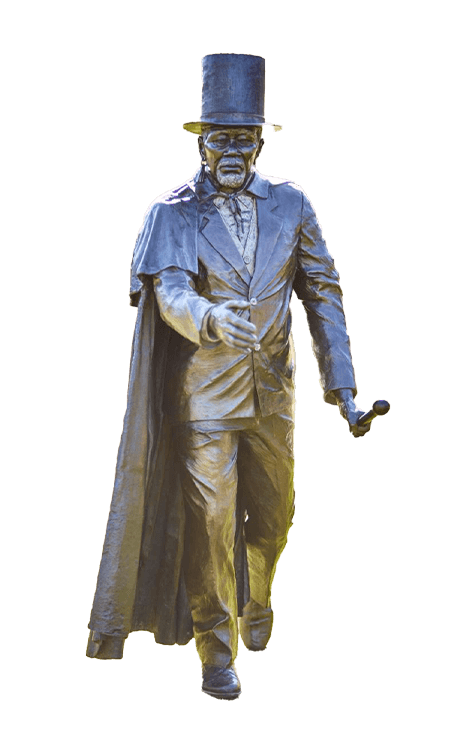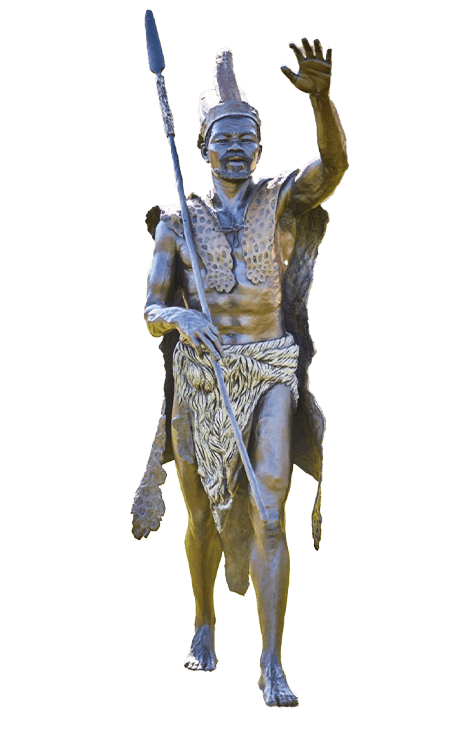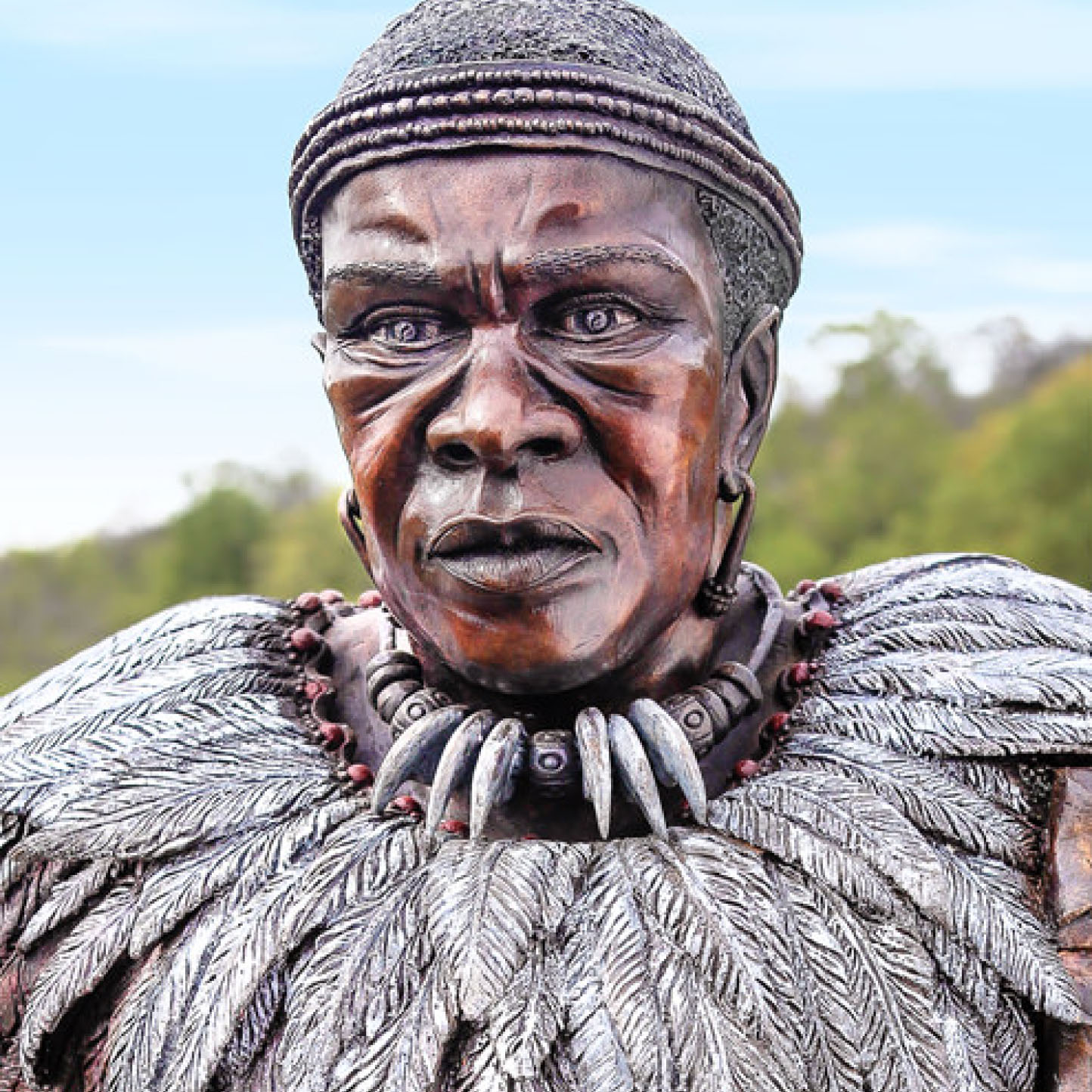
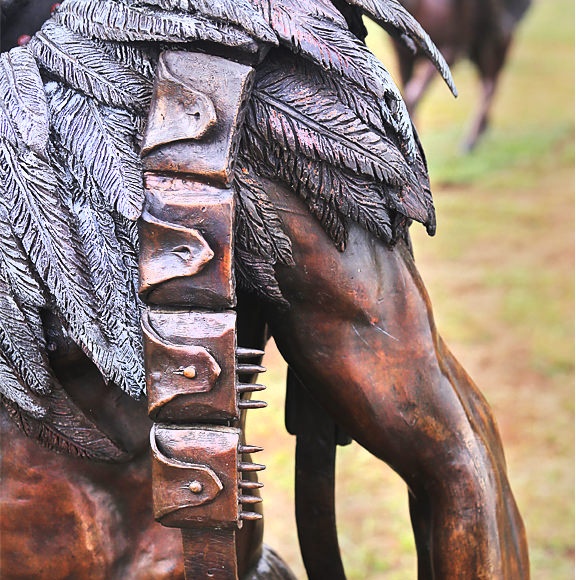
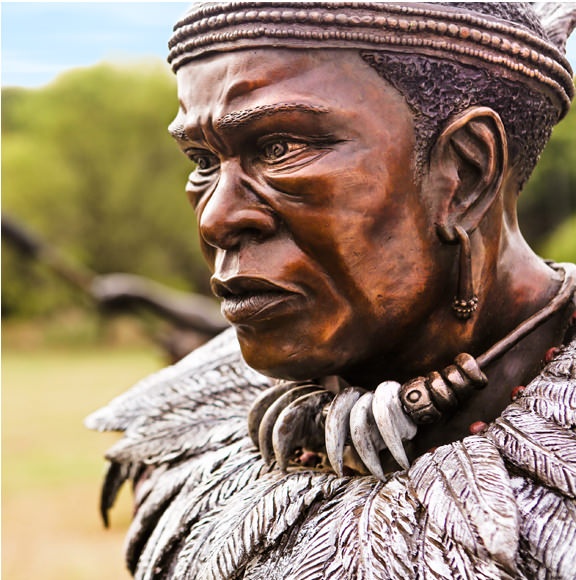
"Whenever he arose or sat down, all within sight hailed him with a shout, Bayeta! or Bayede! Followed by a number of his high sounding titles, such as Great King, King of Heaven, the Elephant etc."
Robert Moffat during a visit to Mzilikazi. ‘Missionary Labours and Scenes in Southern Africa’, Robert Moffat, originally published 1842
King Mzilikazi Ka Mashobane Khumalo
1795 – 1868
Founder and King of the Ndebele (Matabele) State
Born to Mashobane, chief of the Northern Khumalos in present-day KwaZulu-Natal, Mzilikazi grew up during a period of far-reaching political changes.
It was a time of military innovation, when new rulers fought wars of conquest that resulted in large-scale territorial expansion referred to as iMfecane/Difaqane.
Mzilikazi secured a measure of autonomy by voluntarily submitting his clan to King Shaka. Following a dispute with Shaka, Mzilikazi fled from the Zulu kingdom with a large body of loyal followers and their families.
Over the next two decades, the Khumalos clashed with several Sotho, Pedi, Nguni, Griqua and Afrikaner communities, absorbing people from these communities along the way as he moved north. In about 1840 he settled in South Zambezia, in present-day Zimbabwe, where he established a formidable kingdom with its capital at Bulawayo.
Mzilikazi spent the next 28 years broadening his territory, partly by incorporating and by exacting tribute from Shona chiefdoms. He died in 1868 after a long illness.
Considered one of the most successful of the 19th century southern African empire-builders, Mzilikazi conquered much of present-day Gauteng and then dominated half of modern-day Zimbabwe.
Although his kingdom collapsed less than 30 years after his death as the European invaders seized their land, one of the praise-names by which he is still remembered is Umdabuli we Sizwe, the 'Maker of the Nation'.
